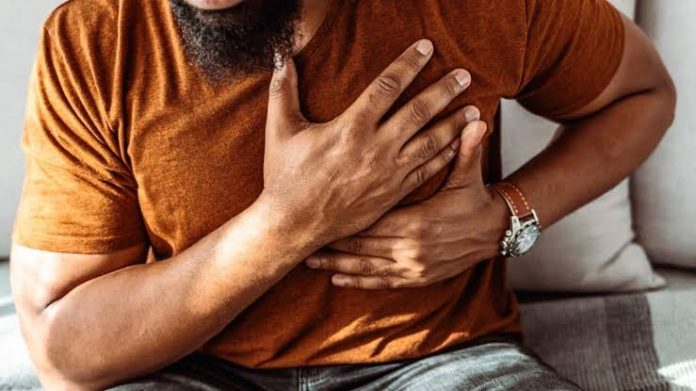8 heart attack signs and symptoms you should not ignore
Dr V. Vinoth, Sr. Consultant Interventional Cardiologist CARE Hospitals Hitech City, Hyderabad shares signs and symptoms of heart attack that people should not ignore as early medical intervention can improve chances of survival.
1. Chest discomfort
The most common and recognizable symptom of a heart attack is chest pain or discomfort. This sensation is often described as a tightness, pressure, or squeezing feeling in the centre or left side of the chest. It can be persistent or intermittent, lasting for a few minutes or coming and going. Most importantly that discomfort or pain will increase while patient is walking or climbing upstairs. It is essential to pay attention to any unusual or unexplained discomfort in the chest region.
2. Upper body pain
 Learn More
Learn MoreHeart attack symptoms may extend beyond the chest to other areas of the upper body. Pain or discomfort can radiate to the arms (usually the left arm), back, neck, jaw, or even the stomach. Sometimes they can have only throat pain which will increase during exercise or walking and decrease with rest. This pain may occur alongside or independent of chest discomfort. Any unexplained pain or discomfort in these regions should not be disregarded.

3. Shortness of breath
Difficulty in breathing or a feeling of shortness of breath can be indicative of a heart attack. This symptom can manifest even without chest pain and may occur at rest or during physical activity. Breathing difficulty during walking or during sleep is very important symptom which may be related to heart. If you find yourself struggling to catch your breath, it is important to consider the possibility of a heart attack.
READ ALSO Top 6 Health Benefits That Make Cucumbers So Good for You
4. Nausea and indigestion
Some individuals experiencing a heart attack may feel nauseous, or experience symptoms resembling indigestion. These symptoms are more common in women. If you have unexplained nausea or indigestion-like discomfort, particularly when accompanied by other potential signs of a heart attack, it is crucial to seek medical attention promptly. Don’t self-medicate. This is the most common reason for delay in seeking medical attention.
5. Profuse sweating
Unexplained or excessive sweating, often accompanied by cold and clammy skin, can be an alarming sign of a heart attack. This symptom is more frequently observed in men. If you suddenly break out in a profuse sweat without any apparent cause, it is important not to overlook it.
6. Fatigue and weakness
Feeling unusually tired, weak, or exhausted, especially with minimal physical exertion or during rest, can be an indication of a heart attack. If you find yourself experiencing extreme fatigue or weakness that is out of the ordinary, it is prudent to consider the possibility of a cardiac event.
READ ALSO Eating Chili Peppers May Help You Live Longer— Top Health Benefits of Hot Chili Peppers
7. Dizziness and light-headedness
Feeling dizzy or lightheaded, experiencing fainting spells, or having a sensation of nearly passing out can be a result of reduced blood flow to the heart. These symptoms should never be ignored and should prompt immediate medical attention.
8. Anxiety and panic
Emotional symptoms such as feelings of anxiety, fear, or impending doom can sometimes precede or accompany a heart attack. These psychological symptoms, particularly when combined with other warning signs, should not be dismissed.
IMPORTANT: You can now Click “HERE” to receive More updates directly on your WhatsApp!
“It is important to remember that symptoms can vary among individuals, and some people, especially women and older adults, may experience atypical or milder symptoms during a heart attack. However, any suspicion of a heart attack should be taken seriously. If you or someone around you experiences any of these signs, it is crucial to call emergency services immediately and seek prompt medical care. Timely intervention can make a significant difference in the outcome, potentially saving lives and minimizing heart damage,” concludes Dr V. Vinoth.













![The 17 Habits Of Truly Wealthy People That you can easily adopt now [Real powerful stuff]](https://worldfamilydigest.com/wp-content/uploads/2022/02/FA033A84-800B-424D-8DEA-2BB8AD9E91F6-100x70.jpeg)

